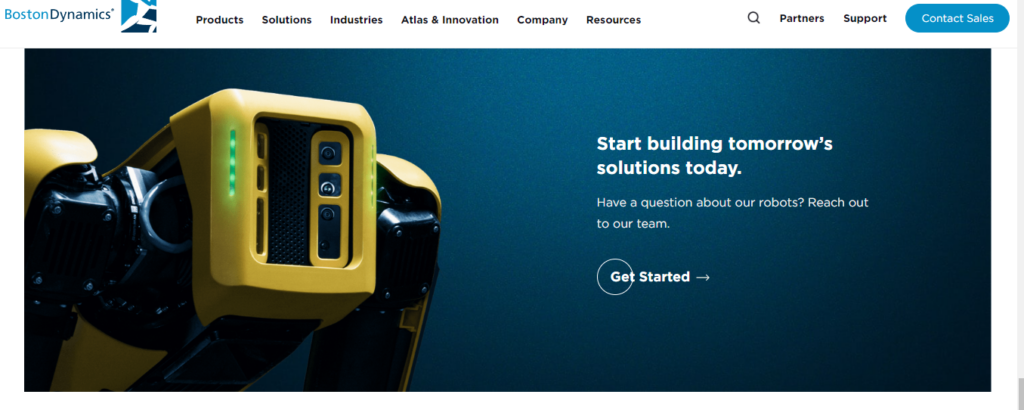The Industrial Revolution, a pivotal era marked by the emergence of various mechanical machines and technologies, reshaped the course of human history. Similarly, the ongoing digital transformation revolution, characterized by rapid advancements in electronic devices and computers utilizing binary code, mirrors this transformative shift but at an accelerated pace and with unprecedented innovation. While significant changes and progress have occurred over the past few decades, recent developments in digital technology have brought about radical transformations.
In this blog, we will explore three transformative technologies—AI, robotics, and the metaverse—that have already reshaped the world and are poised to further revolutionize both the business landscape and our daily lives as they continue to evolve.
Artificial General Intelligence (AGI):
AI, particularly in the realm of generative AI, has fundamentally transformed the way we conduct business and navigate our daily lives. By leveraging advanced algorithms, businesses can now produce authentic-looking images, videos, compelling content, music, and more. However, this is just the beginning of AI’s journey.

The next goal of AI is to achieve Artificial General Intelligence, a level of intelligence surpassing that of any current AI systems or humans. AGI holds the promise of becoming the most sophisticated and powerful form of intelligence on Earth once realized. Its potential impact on society and business is profound.
With the advent of AGI, we envision a future where major business decisions, spanning from investment strategies to product development and production processes, are guided by AGI. These decisions are expected to surpass the efficacy of human counterparts, driving optimal outcomes for businesses, customers, clients, partners, and the planet alike.
Moreover, AGI will serve as a fountain of expert advice across various domains, including compliance, accounting, and beyond. This integration of AGI into business processes ensures that decisions are not only accurate but also aligned with the broader objectives of sustainability and ethical conduct.
Furthermore, AGI’s capabilities extend beyond decision-making. It will play a pivotal role in crafting comprehensive business strategies, conducting research and development initiatives, and devising innovative marketing campaigns. By harnessing the insights and capabilities of AGI, businesses will be better equipped to navigate complex challenges and seize opportunities in an ever-evolving landscape.
Businesses will experience unprecedented problem-solving abilities, revolutionary innovations, enhanced decision-making, efficient resource management, and advanced human-machine collaboration with AGI. When AGI becomes available, almost every business will need to integrate it into their operations at some level to stay competitive in the market.
This integration will occur in the future, and businesses can prepare themselves by incorporating AI tools into their workflows to undergo digital transformation and perform various tasks more efficiently and effectively.
Advanced Robotics:
Robots that are currently in use are programmed, meaning they are specifically programmed in a certain way to perform a certain task, and they can’t do anything other than what they are programmed to do. Sometimes, they are not even created to do other things. Some great examples of this can be seen with robots in manufacturing factories doing different tasks, from creating something to quality inspection, and robots at warehouse facilities which transport goods from one place to another with precision.

But the way things are changing, and companies like Boston Dynamics are working, they are bringing the future we see in movies into reality with different robots. With advancements in technology such as computing, battery power, AI, and others, these robots will become more powerful in the near future. Some robots might also completely replace humans in certain jobs because they will be more capable of doing things that humans can’t do, or at least with that effect, and will also be smarter than normal employees and not as vulnerable as humans under certain conditions.
So, we will see these robots everywhere: as manufacturing plant employees, as drivers, as astronauts, as teachers, as expert employees, etc., all thanks to their thinking capabilities which will come from advanced AI or AGI. This revolution in robotics will not take a few decades because it is already underway, and it is just a matter of years before these robots become more powerful, sophisticated, and intelligent, so much so that we will see them serving coffee at your local cafe or driving your uber.
There are some challenges that come with this, but despite these challenges, the potential benefits of robotic technology are vast. For businesses, investing in robotics now can yield significant advantages, from increased efficiency and productivity to enhanced customer experiences.
The concept of robot-as-a-service (RaaS) is gaining traction, allowing businesses to access robotic capabilities without hefty upfront costs. This subscription-based model democratizes access to cutting-edge technology, enabling even small enterprises to leverage the power of robotics.
Metaverse:
The internet has revolutionized our world, altering how we interact with one another and conduct daily activities, from hailing a cab to ordering food and shopping. This transformation has also significantly impacted businesses, compelling them to shift their marketing strategies from offline to online. Nowadays, a substantial portion of marketing efforts is digital, offering businesses a vital avenue to connect with potential buyers. However, digital marketing isn’t solely about promotion; it profoundly influences sales, storage, product distribution, and more.

Drawing a parallel from the movie “Ready Player One,” the concept of the metaverse emerges—a virtual realm where individuals seek solace and recreation. It transcends mere gaming, evolving into a sanctuary for socializing, creativity, and commerce. The potential impact on businesses is immense. Virtual stores within the metaverse allow shoppers to browse and purchase both virtual and physical products. Marketers leverage the metaverse for promotional activities, while businesses utilize it for virtual meetings, training sessions, and the creation of digital products tailored for this platform.
Although the metaverse is still in its infancy, its future implications are profound. Businesses must embrace emerging technologies like extended reality (XR) to prepare for this new frontier. While predicting the exact impact of the metaverse is premature, it’s poised to rival or even surpass the influence of social media if leveraged effectively.
Conclusion
The convergence of AI, robotics, and the metaverse heralds a new era of possibilities for businesses worldwide. As we stand on the cusp of unprecedented technological advancements, it’s essential for businesses to adapt and embrace these transformative technologies. From the advent of Artificial General Intelligence, revolutionizing decision-making processes, to the proliferation of advanced robotics reshaping industries, and the emergence of the metaverse as a virtual frontier for commerce and social interaction, the future is indeed brimming with opportunities. By staying ahead of the curve and leveraging these innovations effectively, businesses can not only thrive but also lead the way towards a brighter, more interconnected future. Embrace the future today and unlock the boundless potential that lies ahead.

